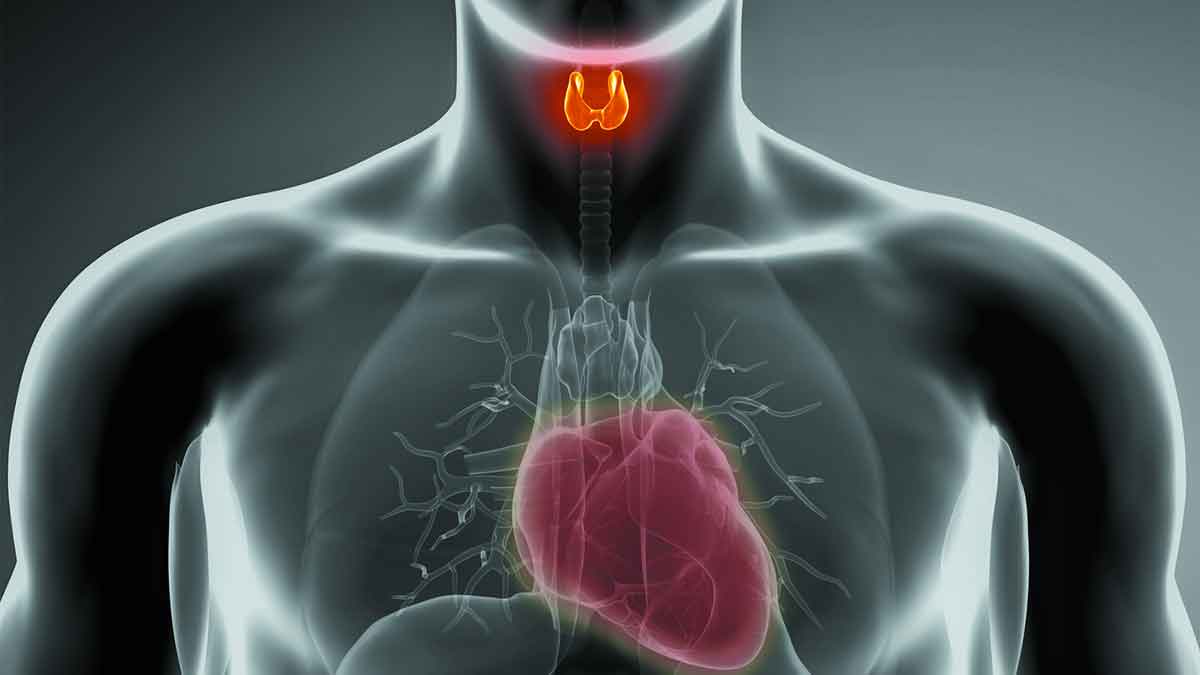
The thyroid gland, often compared to a delicate butterfly at the base of the neck, plays a crucial role in our body. It goes beyond just regulating metabolism and influences various processes by managing hormones. One of its important roles is in the cardiovascular system, especially concerning the heart. Let's explore how the health of our thyroid is connected to the well-being of our heart and what happens when this balance is disrupted.
Table of Content:-
Hypothyroidism: Understanding the Underactive Thyroid Issue

Dr. Sandeep Gore from Fortis Hospital, Mulund, shed some light on the issue of hypothyroidism, which is at times taken very lightly. This is when the thyroid isn't working as well as it should. As thyroid levels drop, it affects different parts of our body, making things slow down. Symptoms include feeling tired all the time, gaining weight without an obvious reason, unable to tolerate the cold, constipation, and having dry skin. Dr. Gore suggests getting help early and seeing experts if you see any of the aforementioned symptoms.
Also Read: Managing Thyroid Health With Diet: Expert Explains How Diet Can Help Optimise Your Thyroid Health
Hypothyroidism's Impact on the Heart: A Complicated Connection
Now, let's look at how hypothyroidism is linked to the heart. Dr. Gore explains that when the thyroid isn't working properly, it can make the heart beat slower and the arteries less flexible. This makes the heart work harder to pump blood throughout the body, and it can also lead to higher cholesterol levels, causing arteries to become narrow and hard—something that could lead to heart problems.
Dr. Gore also points out a connection between hypothyroidism and muscle aches caused by a type of medication called statins. People facing issues with these medications are more likely to have hypothyroidism, showing a link between medication problems and thyroid health. Surprisingly, treating hypothyroidism can sometimes help with these muscle aches, showing how thyroid function and medication can be connected.
Also Read: Thyroid Disorder Can Affect Men Too: Signs To Watch Out For
Empowering Through Proactive Measures
Dr. Gore suggests keeping an eye on your thyroid levels with the help of healthcare providers to control your heart rate and blood pressure. This can reduce stress on your heart. He also recommends a healthy lifestyle with a balanced diet, regular exercise, and stress management to support overall heart health.
In his final thoughts, Dr. Gore emphasizes the importance of knowing about the heart risks linked to thyroid issues. Hypothyroidism is connected to higher cholesterol and an increased risk of heart disease. Taking proactive steps like regular check-ups and cholesterol monitoring can help manage both thyroid and heart health, showing how these two are interconnected.
Navigating the Complex Path of Thyroid Troubles and Heart Health
Dealing with thyroid problems and how they affect the heart can be complicated. But understanding how the thyroid and heart work together empowers people to make good choices for their overall health. Taking a holistic approach that considers both thyroid and heart health is key to navigating these challenges. It's a reminder of how our body's different systems are connected and work together.
Also watch this video
How we keep this article up to date:
We work with experts and keep a close eye on the latest in health and wellness. Whenever there is a new research or helpful information, we update our articles with accurate and useful advice.
Current Version